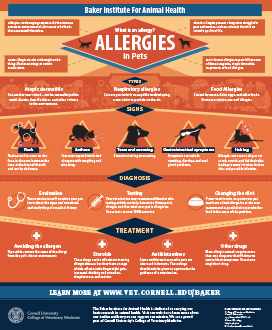Questions To Ask A Dog Daycare
Questions To Ask A Dog Daycare
Blog Article
Can Pet Dog Childcare Reason Disease?
Chances are that if your pet is consistently subjected to other pets, even if they're appropriately vaccinated, they may return with some type of illness. Inoculations, regular vet examinations, and good health practices can decrease danger variables for infection and illness.
Emphasized or distressed dogs can develop gastrointestinal problems and other health issues that are easily spread between dogs. Establishing age restrictions and behavior regulations can aid make certain that just healthy and balanced pets enter your center.
Distemper
Canine distemper is a significant and usually deadly infection that assaults a pet dog's breathing, digestion, skin and body immune systems. Young puppies are particularly vulnerable and can contract the disease through direct contact with an infected pet or via the air-borne transmission of infection bits released during coughing, sneezing or breathing.
The incubation period for canine distemper is between 3 and 7 days. While pups at daycare might seem to catch parvo from another contaminated pet, it's not likely because the incubation period is so short.
While there is no treatment for canine distemper, encouraging treatment can assist canines recover. This consists of liquids, anti-biotics and medicines to manage seizures. The Drake Center for Vet Treatment notes that signs include runny eyes and nose, diarrhea, throwing up, anorexia nervosa and neurological issues such as twitching and tremors. Puppies require a complete vaccination series and yearly boosters to shield them versus this illness, which is why trusted doggie childcare centers require current inoculations.
Kennel Cough
Kennel Cough (Pooch Contagious Tracheobronchitis) is an extremely transmittable top respiratory problem brought on by germs and viruses. It spreads out with airborne beads from a coughing or sneeze, direct call, and sharing of polluted objects such as playthings or water bowls. It is native in places where lots of canines are housed close together, such as kennels, dog parks, brushing beauty salons and shows. Numerous injections are available to shield against the pathogens that create kennel cough, and correct hygiene practices can assist avoid infection.
The timeless sign is a dry, hacking coughing similar to that of a goose honk, and most pet dogs recuperate with little treatment. Nevertheless, severe instances can result in pneumonia, and pups or pet dogs with pre-existing disease go to higher threat for issues. To speed up recuperation, use a harness as opposed to a collar while your canine is recouping to prevent irritation to the windpipe. A humidifier might also aid to moisten the air and stop dry coughing.
Parvovirus
Parvovirus (CPV) is a severe disease in pet dogs. It is similar to feline panleukopenia (feline distemper), yet it's much more harmful and can spread promptly amongst dogs because of its extremely durable nature.
This infection assaults the intestinal tract lining of a pet, ruining it and creating germs to dismiss into the blood stream. The weakened immune system and frustrating germs bring about septic shock, which is typically deadly.
Fortunately, vet hospitals use reliable treatment for parvovirus. These medicines are offered directly right into a patient's blood stream and targeted in the direction of the particular strain of parvovirus. This treatment approach is highly efficient and helps retrain the body immune system to fight off the infection. Pet dogs with extreme symptoms are usually hospitalized for several days for tracking and extensive care to guarantee their survival. Puppies, unvaccinated pet dogs and pets with weak immune systems board dog near me are especially at risk to parvovirus. This is especially real for puppies born to roaming mothers and shelter settings, where they are exposed to numerous various other sick and susceptible pets.
Canine Influenza
Pooch flu (CIV) is a contagious breathing disease that can be caused by pet dogs sharing infected surfaces or direct contact with respiratory system secretions. CIV spreads easily in atmospheres where there are high varieties of pets, such as dog parks, daycares, grooming centers and vet facilities.
Contaminated dogs shed the infection via aerosol respiratory droplets when coughing or sneezing, and may pollute things they come into contact with like cages, toys, food bowls, leashes and the hands and garments of individuals that handle them. Canines can likewise be "quiet service providers" spreading the virus without showing any type of signs themselves.
Signs and symptoms of canine flu consist of nose and eye discharge, cough, fever, loss of appetite, and weakness. The infection can advance to pneumonia, which can be deadly in some pet dogs. PCR viral screening is readily available for verification of infection. Ideally, samples (normally deep nasal or pharyngeal swabs) for PCR screening need to be collected within four days of the onset of medical indicators.